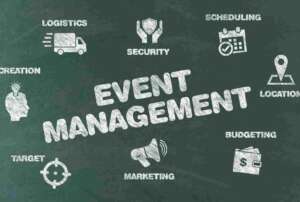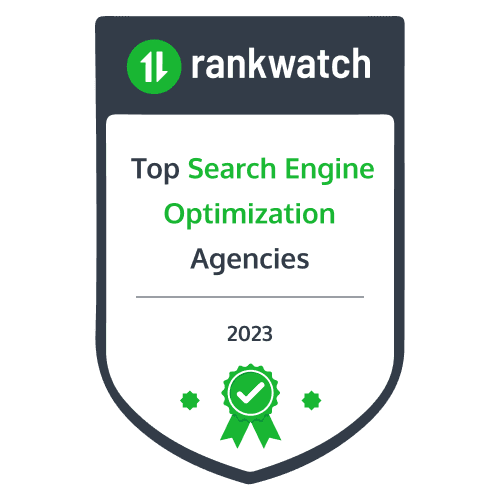In today’s digital age, event marketing has become more important than ever for event companies. As the event industry grows and evolves, businesses must adapt and embrace digital strategies to stay competitive.
In this article, we will explore the significance of event marketing in the digital era, understand the challenges faced by the event industry, discuss the evolution of event marketing, highlight the benefits of digital event marketing, delve into the key components of a successful digital event marketing campaign, explore the use of social media and email marketing for event promotion, discover the importance of creating engaging event content for digital platforms, uncover the secrets to maximizing event website optimization, examine methods to measure the success of digital event marketing efforts, analyze successful case studies, and finally, discuss the future of event marketing in the digital era.


The Importance of Event Marketing in the Digital Age
The event industry plays a vital role in our society, bringing people together for various purposes, such as conferences, trade shows, and networking events. However, with the rise of the digital age, event companies face new challenges in reaching their target audience and standing out from the competition. This is where event marketing becomes crucial. Event companies can attract attendees, build brand awareness, and drive business growth by promoting events through digital channels.
Understanding the Event Industry and Its Challenges


Understanding the event industry is crucial before delving into the world of event marketing. This dynamic and fast-paced sector involves meticulous planning, coordination, and flawless execution. Event companies confront various logistical challenges, including selecting the ideal venue, managing registrations, and efficiently handling attendees. Moreover, they must tackle the hurdle of capturing the attention and actively engaging attendees in an increasingly competitive marketplace.
To triumph over these challenges, event companies need to harness the potential of digital marketing strategies. By leveraging the power of technology and adopting innovative approaches, they can effectively reach their target audience, boost attendance rates, and deliver unforgettable experiences. Through comprehensive market research, strategic content creation, and effective social media campaigns, event companies can establish themselves as industry leaders, ultimately ensuring the success of the events they organize. In a constantly evolving industry, staying up-to-date with the latest technologies, trends, and consumer preferences is paramount.
By continuously adapting to change and embracing new opportunities, event professionals can stay ahead of the curve and deliver exceptional experiences that leave a lasting impact on attendees. So, before embarking on your event marketing journey, truly comprehend the event industry and its unique challenges. This knowledge will be a solid foundation for building your success as an event marketer.
The Evolution of Event Marketing
Event marketing has come a long way since its inception. Previously, event promotion relied heavily on traditional marketing channels such as print, radio, and television. However, with the advent of the internet and social media, event marketing has significantly transformed. Digital event marketing allows event companies to reach a wider audience, target specific demographics, and engage with potential attendees in real time. The evolution of event marketing has provided event companies with new opportunities to create memorable experiences and drive attendance.
Benefits of Digital Event Marketing


Digital event marketing has emerged as a game-changer for event companies, bringing many benefits that cannot be ignored. In today’s fast-paced digital world, where technology continuously advances, embracing digital event marketing has become imperative for event companies to thrive and succeed.
When it comes to cost-effectiveness, digital event marketing takes the crown. Gone are the days when event companies relied solely on traditional marketing methods, often with hefty price tags. With the advent of digital channels such as social media, email marketing, and content marketing, event companies now have the power to reach a much larger audience at a fraction of the cost. This helps save money and provides a platform for more creative and innovative marketing strategies.
Moreover, digital event marketing allows companies to target specific demographics and personalize their marketing messages. Event companies can gain valuable insights into their target audience’s preferences, behaviors, and interests by leveraging data and analytics. With this knowledge, they can craft tailor-made marketing campaigns to resonate with their target audience. This level of personalization helps build stronger connections with potential attendees and increases the chances of higher engagement and conversions.
In addition to cost-effectiveness and targeting capabilities, digital event marketing offers unmatched flexibility. Event companies can experiment with different strategies, tweak their campaigns, and analyze the results in real time. This level of agility allows them to adapt and optimize their marketing efforts on the go, ensuring maximum impact.
Furthermore, digital event marketing opens up a world of possibilities regarding creativity. With various digital platforms, event companies can explore innovative ways to capture their audience’s attention. The possibilities are endless, from interactive social media contests to immersive virtual experiences.
Key Components of a Successful Digital Event Marketing Campaign
A successful digital event marketing campaign requires careful planning, strategic execution, and a deep understanding of your target audience. Several key components must be considered to ensure your campaign’s success.
First and foremost, defining your goals and objectives for your digital event marketing campaign is crucial. What do you hope to achieve through your efforts? Whether it is increasing attendance, generating leads, or building brand awareness, clearly defining your goals will help guide your marketing strategy and determine the metrics you measure success.
In addition to goal-setting, understanding your target audience is essential. Who are your ideal attendees? What are their interests, needs, and pain points? By understanding your target audience, you can tailor your digital event marketing campaign to resonate with them on a deeper level. This will enable you to create compelling content and messaging that speaks directly to their needs and encourages them to engage with your event.
Moreover, conducting thorough research on your target audience will allow you to identify the most effective channels and platforms to reach them. Are they most active on social media? Do they prefer email communication? By understanding their preferred channels, you can optimize your marketing efforts and ensure your message reaches the right people at the right time.
Furthermore, leveraging data and analytics is vital in today’s digital landscape. By analyzing the performance of your digital event marketing campaign, you can identify what is working and what needs improvement. This data-driven approach will enable you to make informed decisions and optimize your strategy for better results.
Lastly, don’t forget to continuously monitor and measure the success of your digital event marketing campaign. By regularly evaluating your performance against your goals and objectives, you can make necessary adjustments and improvements to ensure you are on track to meet your targets.
Leveraging Social Media for Event Promotion


Social media has revolutionized the way we communicate and connect with others. It has also become a powerful tool for event promotion. Platforms such as Facebook, Instagram, Twitter, and LinkedIn allow event companies to reach a vast audience, engage with potential attendees, and generate buzz around their events. Event companies must develop a comprehensive social media strategy to leverage social media effectively. This includes creating engaging content, utilizing relevant hashtags, collaborating with influencers, and engaging with followers. By leveraging social media, event companies can create a buzz around their events and drive attendance.
Utilizing Email Marketing in Event Campaigns
Email marketing remains one of the most effective ways to promote events and engage with attendees. With an average ROI of 3800%, email marketing is a powerful tool that should not be overlooked. Event companies can utilize email marketing to build anticipation, provide event updates, and encourage attendees to take action. To maximize the effectiveness of email marketing, event companies should segment their email lists, personalize their messages, and leverage automation tools to send targeted emails at the right time. By utilizing email marketing effectively, event companies can drive attendance, generate leads, and build long-lasting relationships with their audience.
Creating Engaging Event Content for Digital Platforms
In the digital age, content is king. Creating engaging event content is crucial to capture the attention of your target audience and stand out from the competition. Event companies should leverage various types of content, such as blog posts, videos, infographics, and podcasts, to promote their events. The content should be informative, entertaining, and shareable. By creating engaging event content, event companies can spark interest, generate buzz, and encourage attendees to share the content with their networks, thereby increasing the reach and visibility of their events.
Maximizing Event Website Optimization for Increased Visibility


Your event website is the digital storefront of your event. It is crucial to optimize your event website to increase visibility and attract potential attendees. Event companies should focus on search engine optimization (SEO), user experience (UX) design, and mobile optimization to ensure their event websites rank well in search engine results and provide a seamless browsing experience on all devices. Additionally, event companies should utilize landing pages, call-to-action buttons, and registration forms to capture leads and encourage attendees to take action. By maximizing event website optimization, event companies can drive traffic, increase conversions, and ultimately achieve their event goals.
Measuring the Success of Your Digital Event Marketing Efforts


Measuring the success of your digital event marketing efforts is crucial for understanding your strategies’ effectiveness. It allows you to make data-driven decisions that can significantly impact the overall outcome. To evaluate the success of your campaigns, there are several key metrics that event companies should track meticulously. These metrics provide valuable insights into the performance of your marketing efforts and help you make informed decisions moving forward.
The first metric to consider is attendance, which measures the number of participants or attendees at your digital events. This metric gives you an indication of the overall reach and popularity of your events. Tracking attendance can gauge your target audience’s interest and engagement level.
Another important metric to monitor is website traffic. This metric gives you an idea of how many visitors are coming to your event website. By analyzing website traffic, you can determine the effectiveness of your online marketing campaigns and identify opportunities to improve your website’s visibility and engagement.
Social media engagement is yet another crucial metric to consider. It measures the level of interaction and engagement your digital event generates on social media platforms. By tracking social media engagement, you can assess the impact of your social media marketing efforts and make adjustments to optimize engagement and reach.
Email open rates are also an essential metric to track. It indicates the percentage of recipients who open and engage with your event-related emails. By analyzing email open rates, you can determine the effectiveness of your email marketing campaigns and make improvements to increase engagement and conversions.
Lead generation is another valuable metric to assess. It measures the number of leads or potential customers your digital event generates. By tracking lead generation, you can evaluate the quality and effectiveness of your marketing strategies in attracting and converting prospects into customers.
Lastly, revenue generated is a key metric that directly reflects the success of your digital event marketing efforts. It measures the monetary value generated from your events, including ticket sales, sponsorships, and partnerships. By analyzing the revenue generated, you can assess the financial impact of your marketing strategies and make data-driven decisions to maximize profitability.
By diligently analyzing these key metrics, event companies can gain valuable insights into the success of their digital event marketing efforts. These insights allow them to identify areas for improvement, optimize their strategies, and achieve better results with each subsequent campaign. In the competitive landscape of digital event marketing, tracking these metrics is crucial for staying ahead of the curve and delivering impactful events that resonate with your target audience.
The Future of Event Marketing in the Digital Era
As technology advances, the future of event marketing looks incredibly promising. With the rise of digital event marketing, virtual and hybrid events are expected to become even more prevalent. This shift opens up a whole new world of possibilities for event companies, as they now have the opportunity to reach a global audience and engage with attendees remotely.
The advent of technologies such as artificial intelligence (AI), virtual reality (VR), and augmented reality (AR) will undoubtedly revolutionize the event experience. Event companies will be able to create immersive and interactive experiences for attendees, taking engagement to a whole new level. Imagine attending a virtual event where you can explore a virtual exhibition hall, interact with 3D displays, and even network with other attendees through VR avatars. The possibilities are truly endless.
Moreover, the power of data analytics and automation cannot be underestimated in event marketing. These tools will continue to be crucial in enhancing the overall event experience. By analyzing attendee data, event companies can gain valuable insights into their preferences, enabling them to tailor future events to meet their needs better. Conversely, automation can streamline various processes, such as registration, ticketing, and content delivery, making the entire event management process more efficient and seamless.
In conclusion, the future of event marketing is undeniably exciting. The rise of digital event marketing and AI, VR, and AR advancements will transform how events are organized and experienced. Integrating data analytics and automation will further enhance the efficiency and effectiveness of event marketing strategies. With all these technological advancements at our disposal, event companies have many opportunities to create unforgettable experiences for attendees, whether physically present or joining remotely. So fasten your seatbelts and prepare for a thrilling journey into the future of event marketing.
Conclusion
In conclusion, event marketing in the digital era is essential for event companies to thrive and succeed. By embracing digital strategies and leveraging the power of social media, email marketing, engaging content, and optimized event websites, event companies can attract attendees, build brand awareness, and drive business growth. Measuring the success of digital event marketing efforts and analyzing case studies can provide valuable insights and guide future marketing strategies. As we look to the future, the event industry will continue to evolve, providing new opportunities and challenges. By staying at the forefront of digital event marketing trends and embracing innovation, event companies can unleash the power of event marketing and achieve extraordinary results.
Let’s together create an unforgettable event marketing campaign. Contact Markitome today!



We hope you’re enjoying reading our blogs… Don’t forget to secure your browsing experience with Nord VPN. Click the banner below to learn more
More To Explore
Redefining Digital Marketing in 2024: 10 Game-Changing Trends
In the ever-evolving world of digital marketing, staying ahead of the curve is essential. As we approach 2024, it’s crucial to be aware of the
SEO Mania-7 Proven Strategies for Explosive SEO Growth in 2024
Understanding the Importance of SEO in 2024 In the ever-evolving world of SEO, staying ahead of the curve is crucial to your online success. As